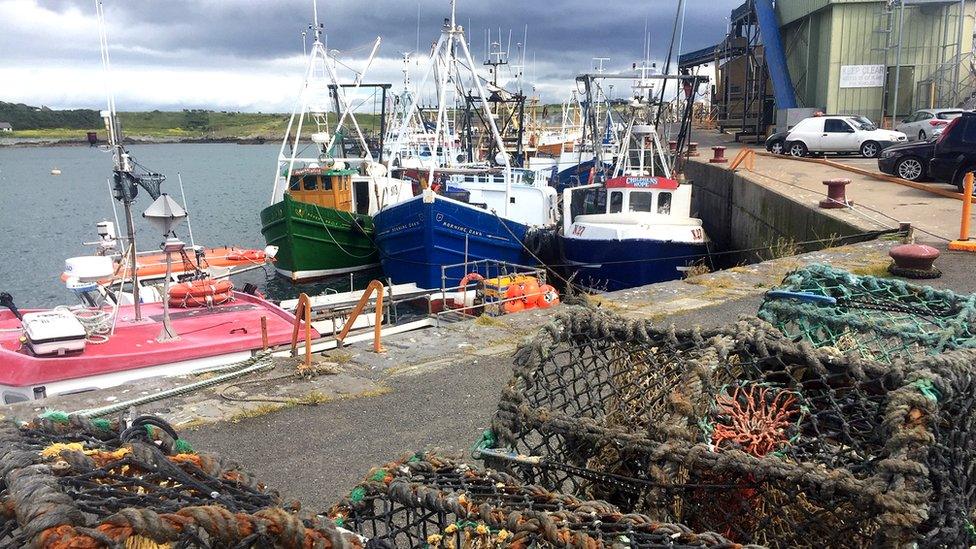Brexit: How the cost of Stilton underlines the challenge facing NI retailers
- Published
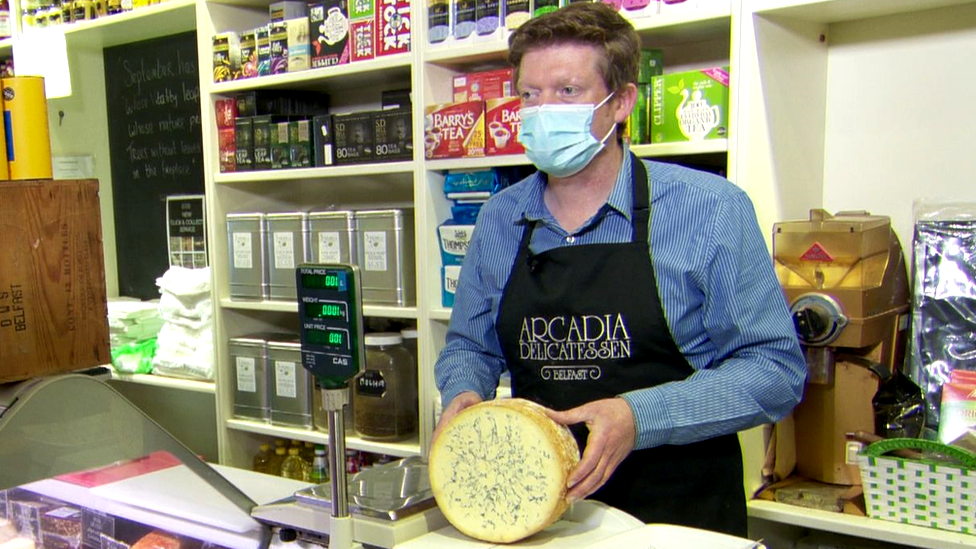
Mark Brown sells the cheese from his Belfast deli
A piece of Stilton tells the story of how Brexit will challenge Northern Ireland retailers.
Mark Brown sells the cheese from an impressive counter at his Belfast deli.
I went to meet him for BBC NI's Spotlight programme, which is examining the potential effects of the new Irish Sea border.
He brings in small quantities - perhaps a half-Stilton a week - which is packed in ice and couriered from England to Northern Ireland.
It's a simple commercial transaction, but from 1 January it will get a lot more complicated.
On that date the Brexit transition period ends and the Northern Ireland Protocol begins to operate.
The protocol is the deal that prevents Brexit from creating a harder border between Northern Ireland and the Republic of Ireland.
It does that by keeping Northern Ireland in the EU's single market for goods, which means products don't have to be checked as they cross the land border.
But the flipside is that products crossing the Irish Sea and entering Northern Ireland from the rest of the UK will be subject to new checks and controls to ensure they meet EU standards.
The EU has strict rules on what food enters its single market, particularly food which contains products of animal origin - milk, eggs, meat and fish.
So that includes the Stilton that MrBrown is bringing in from England.
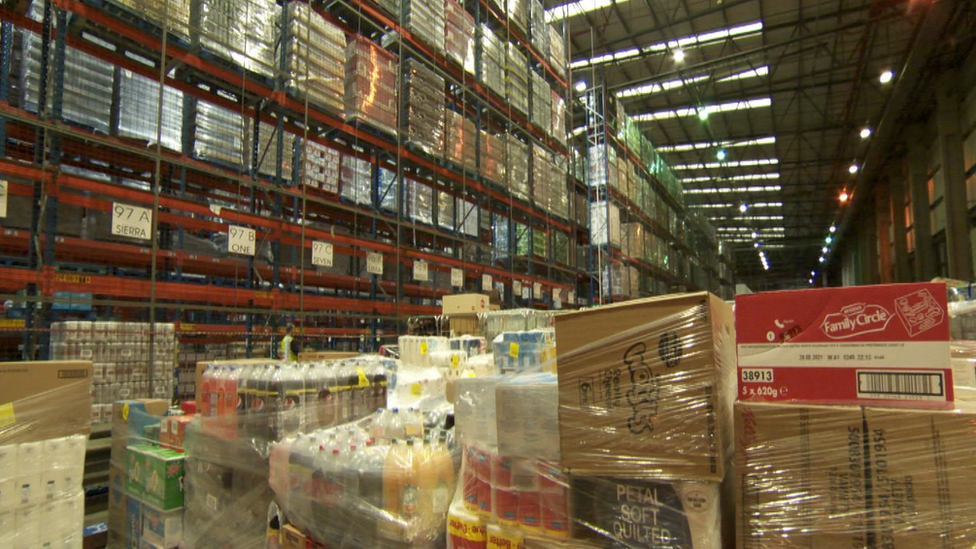
The EU has strict rules on what food enters its single market
One EU requirement is that these products are accompanied by an Export Health Certificate (EHC).
These certificates need to be filled out by an appropriately qualified person, normally a vet who will be charging for their time.
That means they are not cheap. If a vet is completing a certificate for a long-standing client shipping large volumes of a simple product the cost might be £50 per certificate.
But for a more complex certification, which takes more time, the cost can be well over £100.
This is not a one-off requirement. They must accompany every shipment, every time.
Easier to get cheese from the EU
It currently costs Mr Brown about £60 to get a half-Stilton shipped from England. but with his supplier having to pay for an EHC the cost could easily double.
"You can take a £10 charge or something like that, because people will accept maybe 10, 15, 20% but not when you're talking 100% - it's ridiculous," Mr Brown told Spotlight.
Last year, ahead of fears that a no-deal Brexit would have made it more expensive to import continental cheeses into Northern Ireland, Mr Brown was looking for British substitutes.
But that situation has now flipped - it will be easier to bring in cheeses from anywhere in the EU than from Britain.
"That's the irony of it all," he added.
Now scale up Mr Brown's simple shipment to the level of a supermarket.
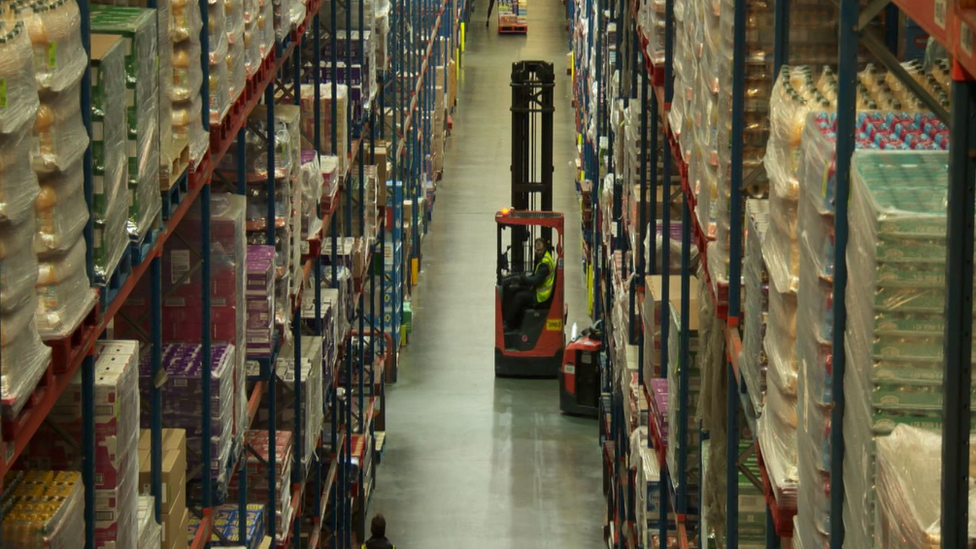
Much of the food on the supermarket shelves comes via distribution centres in England and Scotland
Northern Ireland is a major food producer. but much of the food on the supermarket shelves comes via distribution centres in England and Scotland.
Each lorry-load of food will require dozens of EHCs adding as much as £10,000 to each load.
'Very simple rationale'
Aodhán Connolly of the NI Retail Consortium said that could leave some supermarket businesses wondering if they have a future in Northern Ireland.
"Well, if somewhere is costing you money instead of making you money, it's a very simple rationale," he said.
The government is spending £300m to help GB businesses with new customs processes when shipping goods to Northern Ireland - but that doesn't cover the costs of these new food certification requirements.
Separately from the main trade negotiation with the EU, the government is also pushing for supermarkets to be given special treatment with relaxed requirements when shipping to Northern Ireland.
"We're doing our best to work with the EU, work with the UK Government to make those solutions work," Mr Connolly said.
"But we need to see them, and we need to see them coming through now."
Spotlight will be broadcast on BBC One Northern Ireland at 22:45 BST on Tuesday, 13 October.
- Published7 October 2020
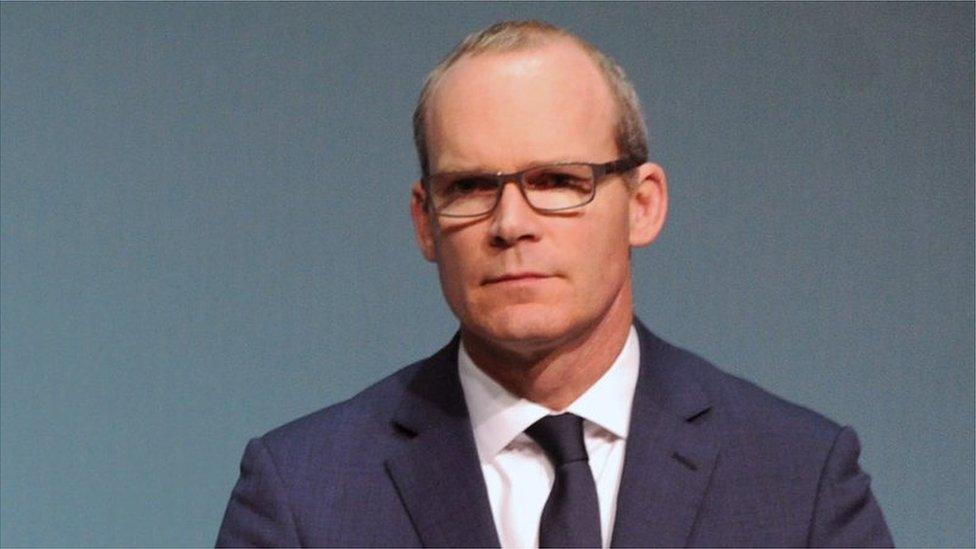
- Published28 September 2020
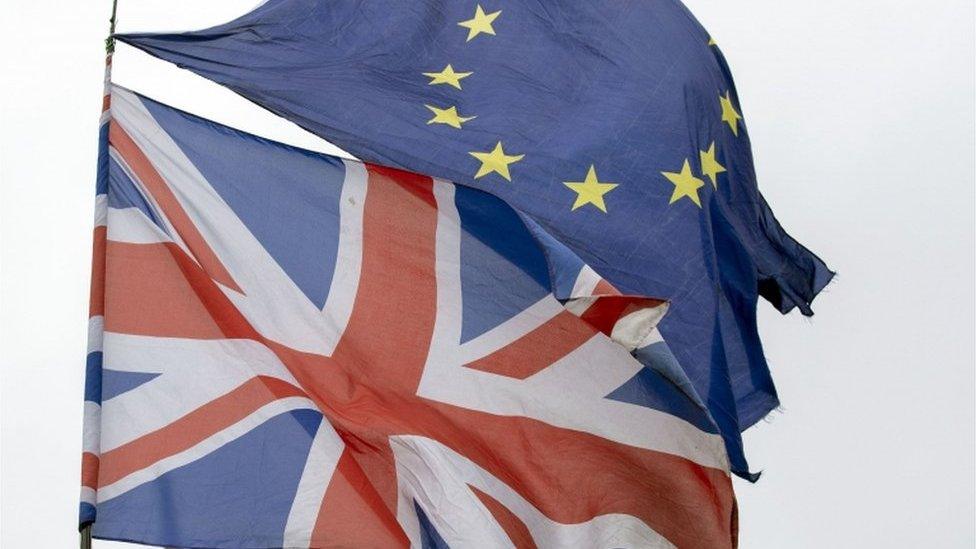
- Published29 September 2020
